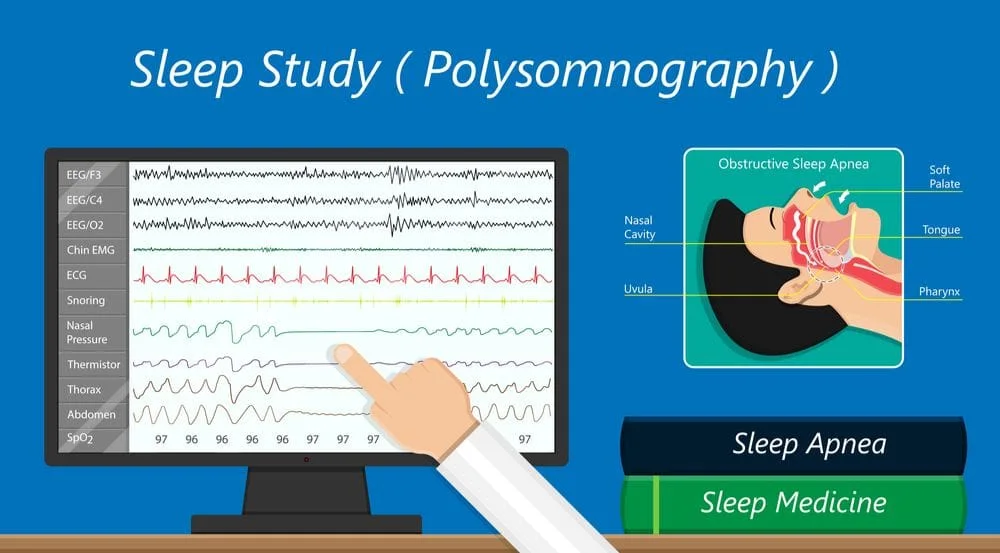What is Sleep Apnea?
Sleep apnea is a condition in which breathing is repeatedly interrupted during sleep. As a result of interrupted breathing, sleep itself is interrupted as the brain arouses the sleeper to resume breathing. Often the sleeper wakes up just enough to take a breath and does not remember awakening during the night.
Why is important to test for sleep apnea?
The significance of sleep apnea can be intuitively understood by anyone who has experienced a poor night of sleep. Because sleep apnea causes increasingly fragmented and poor quality sleep, it impairs the body’s ability to gain the normal physical, cognitive, and emotional recovery benefits of sleep. This leads to serious effects on health as well as day-to-day function. Institute of Medicine found that untreated sleep apnea shortens life 5 – 10 years and increases the risk of high blood pressure, heart disease and stroke. Other consequences linked to sleep apnea include type 2 diabetes, obesity, cognitive impairment, and automobile accidents due to drowsiness.
How do I know if I am at risk for sleep apnea?
Sleep apnea can be challenging to identify, as our memory of events that occur during sleep is limited. However, there are some signs and symptoms that you (or your bed partner) can look for.
- Snoring
- Pauses in breathing
- Gasping for air or choking during sleep
- Daytime sleepiness
- Frequent urination at night
- Feeling unrefreshed after sleep
- Awakening with a dry mouth or sore throat
- Morning headaches
- Weight gain, or difficulty losing weight
- Depression or irritability
- Poor memory
- Difficulty concentrating
What are the different types of sleep apnea?
Obstructive Sleep Apnea
The most common type of Sleep Apnea is Obstructive Sleep Apnea (OSA). OSA occurs when the upper airway is blocked, usually when the soft tissue in the rear of the throat collapses and closes during sleep.
Central Sleep Apnea
In Central Sleep Apnea (CSA) the airway is not blocked, but the brain fails to send the proper signals to the muscles that control breathing.
Mixed Sleep Apnea
Mixed Sleep Apnea, or Complex Sleep Apnea, is caused by a combination of etiologies.
What are the benefits of Home Sleep study?
Our sleep test captures your sleeping patterns at home, in your usual sleeping environment, rather than at a laboratory testing facility. Therefore, our test measures a more accurate representation of your normal routine.
In addition, our test allows you to conveniently and cost effectively record multiple nights of sleep. Research shows that breathing patterns often vary significantly from one night to the next, and that collecting data over multiple nights provides a more accurate overall result.
How is the Home sleep study process works?
Your provider will order the Home sleep test. You will receive sleep test kit and material for the study. You will have support from the vendor for thee instructions. Once you use Home sleep study for 3 days, you can mail it back. Your report will be interpreted by Board certified doctors and office will get back to you on the results and further plans.

